Disclaimer: As a Chewy and Amazon affiliate, I earn from qualifying purchases. This does not impact our reviews and comparisons.
Have you ever wondered why cats run away?
Cats usually run away to explore territory.
But there’s more reasons…
In this article, I’ll go through 7 scary reasons why cats run away, and give tips to prevent escapees.
The goal of this website is to help cat owners learn more about taking care of their cats. I am not a veterinarian and I recommend seeking the advice of a vet for any further questions.
This post is also sponsored by Petsnap. If you want to know the latest trends in the pet industry, visit Petsnap for more pro tips.
Let’s get into the article.

7 Scary Reasons Why Cats Run Away
1. Territory Control
Cats want to gain control of their territory.
A study using an animal-borne camera with cats in a suburban area in the United States found that 45% of cats crossed a road during the monitoring period.
This shows that many cats roam around when not tended to.
To see what cats were doing, the National Geographic channel attached a GPS to cats.
Whilst a few cats stayed close to home, some of the cats went for trips around the neighborhood.
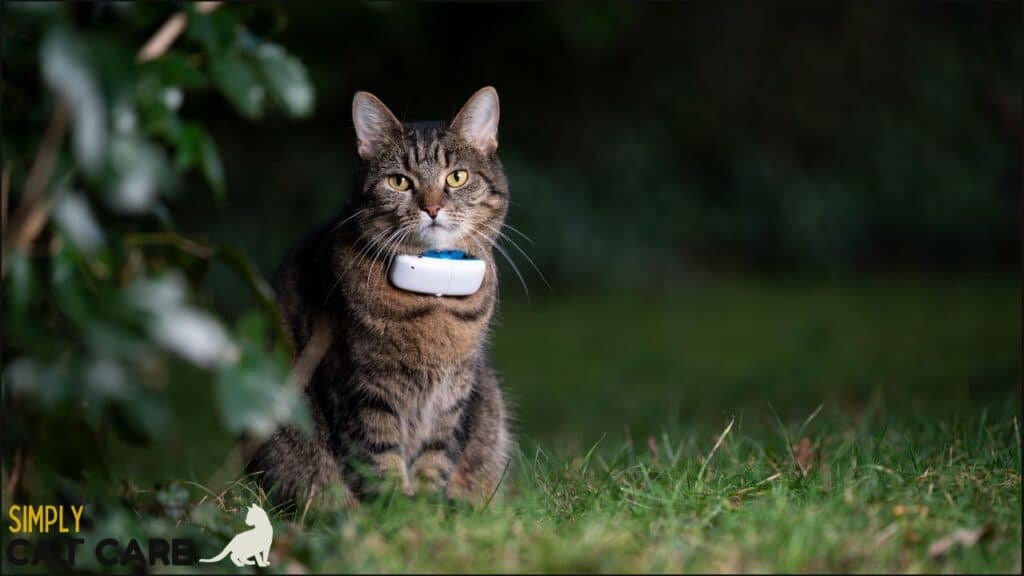
2. Pain
A cat in pain might decide to run away and not return home.
Cats in pain may fear predators and consider hiding to reduce the risk of harm.
If you think your cat is in pain contact your vet for help.
3. Mating
When a female cat is in the heat it will yelp out for a mate.
This can attract male cats around the area, who aren’t desexed.
Cats will roam around for mates and seek out these female cats. This can increase the risk of your cat running away.
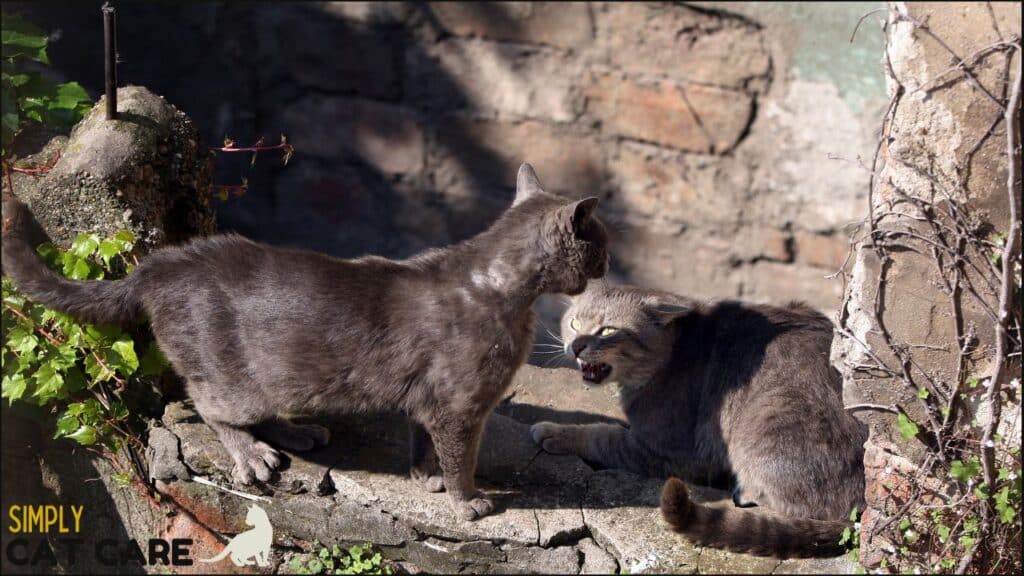
4. Moving House
If you move house, you may experience a runaway cat.
Why is this?
Like humans, cats get used to their environment.
When introducing a cat to a new home, it might not see the new environment as its real home yet. This may lead to your cat trying to find its way back home.
If you move house, keep your cat indoors until they acclimatize to the new environment.

5. Not Enough Food
In the wild, cats eat 7-20 small meals a day.
This helps them meet their caloric needs as a carnivorous predator.
If not being fed, a cat may want to instinctively go hunting for more food.
To keep them from running away, give them better food and consider small frequent meals to improve their satisfaction.
6. Boredom
When left indoors, cats may get bored.
If your cat happens to see the front door ajar, it represents a sight of a brand new world outside.
Think of it from the cat’s perspective.
They are seeing the outside door with all the sights, sounds, and smells. Your cat will be thinking about its territory and possible hunting adventures.
A lack of environmental enrichment increases boredom in cats.
This comes from a lack of climbing, perching, and hiding opportunities in your house.
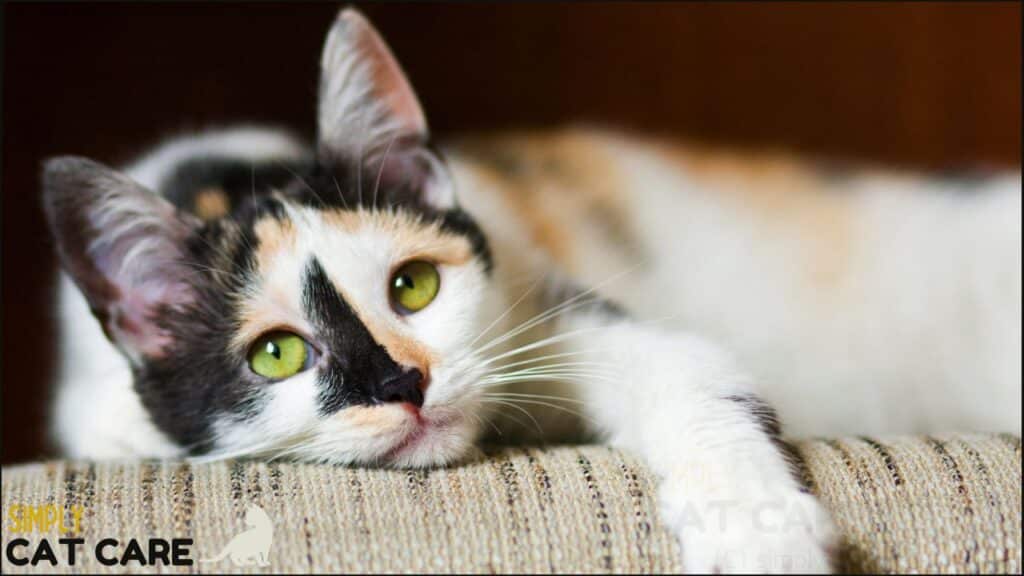
7. Conflict
Cats may have conflicts with other cats or pets in the house.
This type of situation is either loud or silent.
A silent conflict involves a cat staying away from another animal, which may result in running away.
If your cat gets frightened it may decide to go into defensive mode and try to hide. Cats will not reveal their location, for fear of being caught by threats.
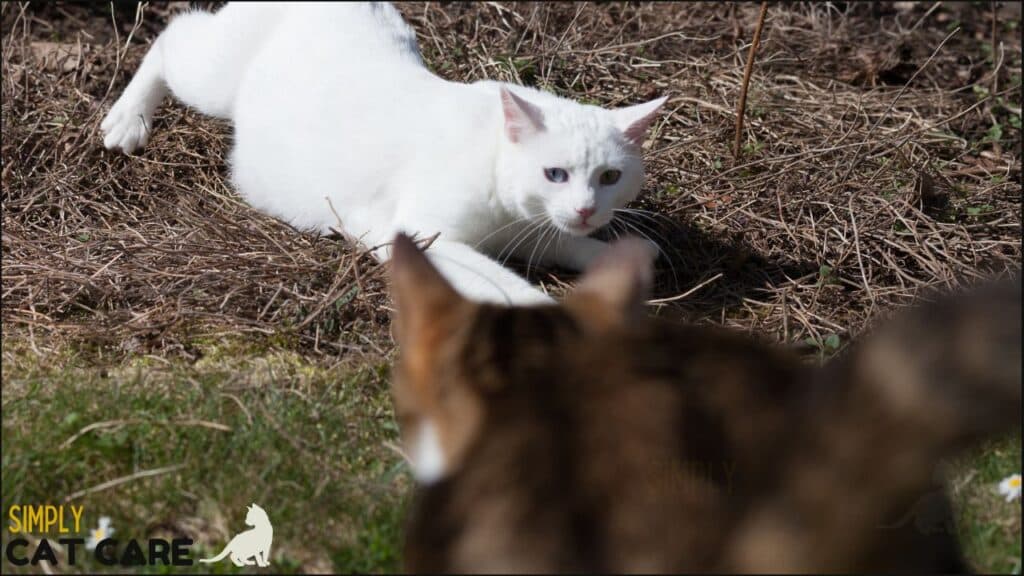
Frequently Asked Questions
What Are the Dangers of Cats Running Away?
The leading cause of cat fatality is road-related trauma.
A cat’s instinct is to hunt, explore, and mark territory. The instincts of a cat to hunt, explore, and mark territory will often involve passing streets.
If a cat has moved to a new house, it might be trying to find its way back home. Of course, the only way to do that is to crossroads.
Another problem of cats running away is exposure to disease and injury. Orange male cats are more prone to aggression and fighting which may result in injury.
Learn More:
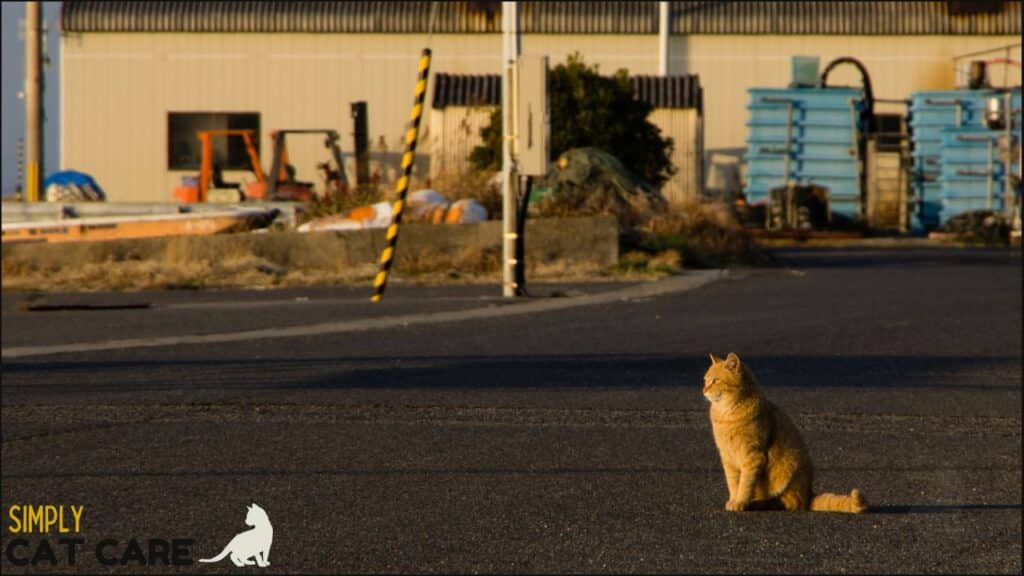
How Do I Stop a Cat From Running Away?
Knowing the cat’s strong desire to explore, it’s best to be proactive.
The main way to help improve your cat’s lifestyle is with environmental enrichment.
This means making the indoor environment as interesting and fun as possible to reduce the risk of wanting to run away.
Some call this ‘catification’ and involves things such as:
- Cat trees for climbing and surveillance
- Cat caves for hiding and security
- Window access
- Large litter boxes for an enjoyable litter experience
- Cat toys
- Access to high quality food and fresh water
Creating an outdoor enclosure (e.g. a Catio) for your cat to explore and play whilst getting some sunlight is also a good option.
Cat proof your fencing and secure the perimeters by blocking off holes.
Other steps to consider include the following:
- Microchips
- Consider de-sexing
- Restrict outdoor access (especially after moving)
- Make sure your cat gets enough food
- Reduce stress
- Consider a GPS tracker
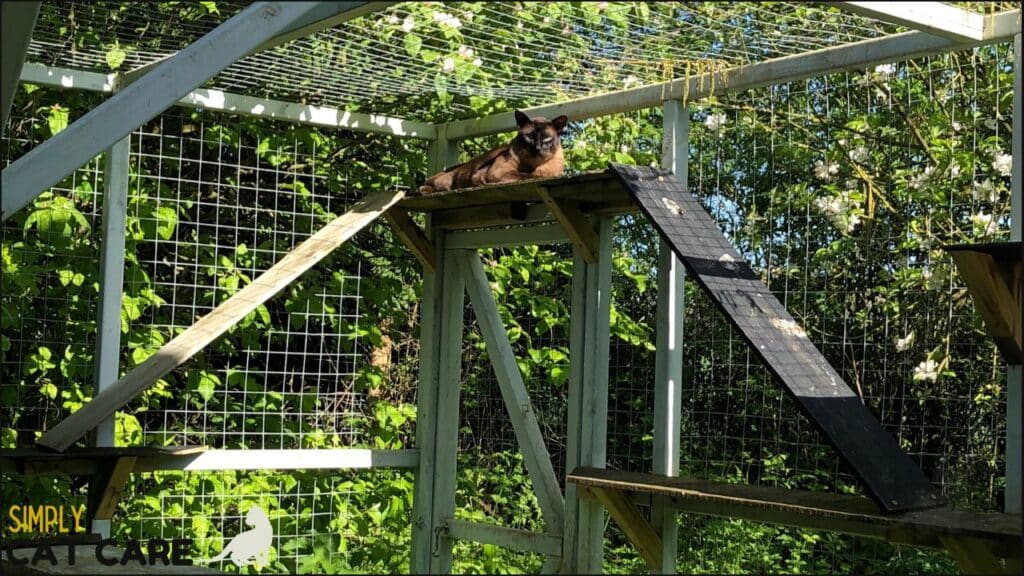
What Do I Do if My Cat Runs Away?
Ask neighbors and distribute flyers.
Consider posting to Facebook groups.
Always be proactive with prevention. Keeping your cat microchipped for databases helps with search. A collar is always a great idea.
Pro tip:
Keep lots of photos of your cat, in case you need photo identification.
Make sure to search your home, as some cats can hide well under beds and different gaps.
Leave food near your door to encourage your cat home.
Remember, a cat might be scared and in survival mode. It might not want to reveal itself immediately.
Another thing to keep in mind is whether you have moved. Cats may try to find their way back home.
Consider expanding your search and using flyers appropriately.
Your cat might think its home territory as not just your house but 2-3 blocks around it. Or it might be trying to find its way back to your old home since it is thinking that is ‘home’.
Conclusion
Cats are territorial and have a strong desire to patrol their environment. This often leads cats to wander about nearby, especially if not desexed.
A cat is a predator so it may seek out hunting opportunities if bored or hungry.
Keeping your environment interesting with cat trees, toys, caves and other items reduces boredom and helps reduce the risk of escapees. Make sure to secure your premises to protect your cat.
Take photos of your cat and microchip in the worst-case scenario you lose your cat.
Further reading:
